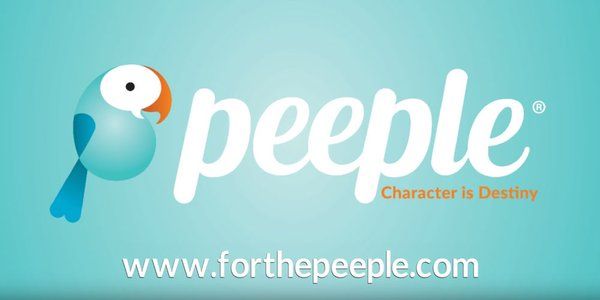
I must admit I did not believe Peeple, the "Yelp for people" app that ignited an online firestorm last October, would ever see the light of day. As someone who wrote at the time that Peeple might be an elaborate hoax, I was surprised to see Peeple announce its public launch on March 7.
And out of curiosity and with a slight apology to the creators for believing it was a hoax, I downloaded the app to see what the hubbub was about.
The app itself is simple in design and user experience, almost bordering on crude. One major change, from the original plan to the end product, is that the five-star rating system, à la Yelp, was replaced with a three-tier rating system: "positive," "neutral" and "negative." And all reviews need to be approved by the rated person, so all criticisms are screened beforehand by the criticized.
A profile can be evaluated on three fronts: professional, personal and dating. But the dating section is closed from outside reviews, unless you go into the settings and label yourself as single. It's a peculiar way to block off what could be the most fertile place for salacious reviews by a lover.

All one really needs to learn about Peeple takes about 20 minutes, tops. Yet a week after its launch, Peeple remains a ghost town. Even though I live in Berkeley, California, a hot spot in the tech-savvy Bay Area, I kept seeing the same 20 to 25 people when I incessantly tried scrolling for new people on its "Nearby" page.
Considering that the two founders of Peeple, Julia Cordray and Nicole McCullough, worked on the app in San Francisco, I expected much more of a presence in the Bay Area. But I was not going to dock Peeple points because a week-old app does not have enough people using its platform.
Luckily for me, one of the two dozen people who have Peeple in my area was Fusion reporter Michael Rosen, a close friend of mine. He is one of the rare few who received a review that they then approved, which automatically publishes it: "Michael wears a beard well and is a pretty good writer too," reads the "A+" endorsement.

Rosen tells Newsweek that he believes the interface is too confusing—such as the "like" button on every profile, which seemed to have no clear purpose. But he sees a niche for Peeple as "a platform to express earnest appreciation for friends."
"There's something more comfortable about a public expression of that feeling," says Rosen. "Also, That's The Way We Communicate Now. [The caps are intentional.] Facebook's behaviors are too codified at this point for it to be a platform for that."
Halfway through writing a review for another friend, I almost began wishing Peeple would be as Yelp-y and biting as many people initially feared it would be, rather than a marshmallow app that is basically LinkedIn with warm fuzzies. While Peeple says it "want[s] character to be a new form of currency," the marketplace for exchanging character and reputations is under too tight control. Currency, like electricity or human interactions, needs to flow.
Overall, it feels like a toothless app, with all its incisive features yanked as a result of last year's public scorn. And as a part of that scorn circus, I felt a small dosage of sympathy for the Peeple that could have been.
Rosen too asks for more spice in the app, recommending anonymity, like that in Yik Yak or Reddit, to open people up—even at the risk that some users may abuse it to write defamatory reviews. "There has to be some reason to return every day," Rosen says. "Like, once you write a recommendation…then what?"
Uncommon Knowledge
Newsweek is committed to challenging conventional wisdom and finding connections in the search for common ground.
Newsweek is committed to challenging conventional wisdom and finding connections in the search for common ground.
About the writer
Seung Lee is a San Francisco-based staff writer at Newsweek, who focuses on consumer technology. He has previously worked at the ... Read more





